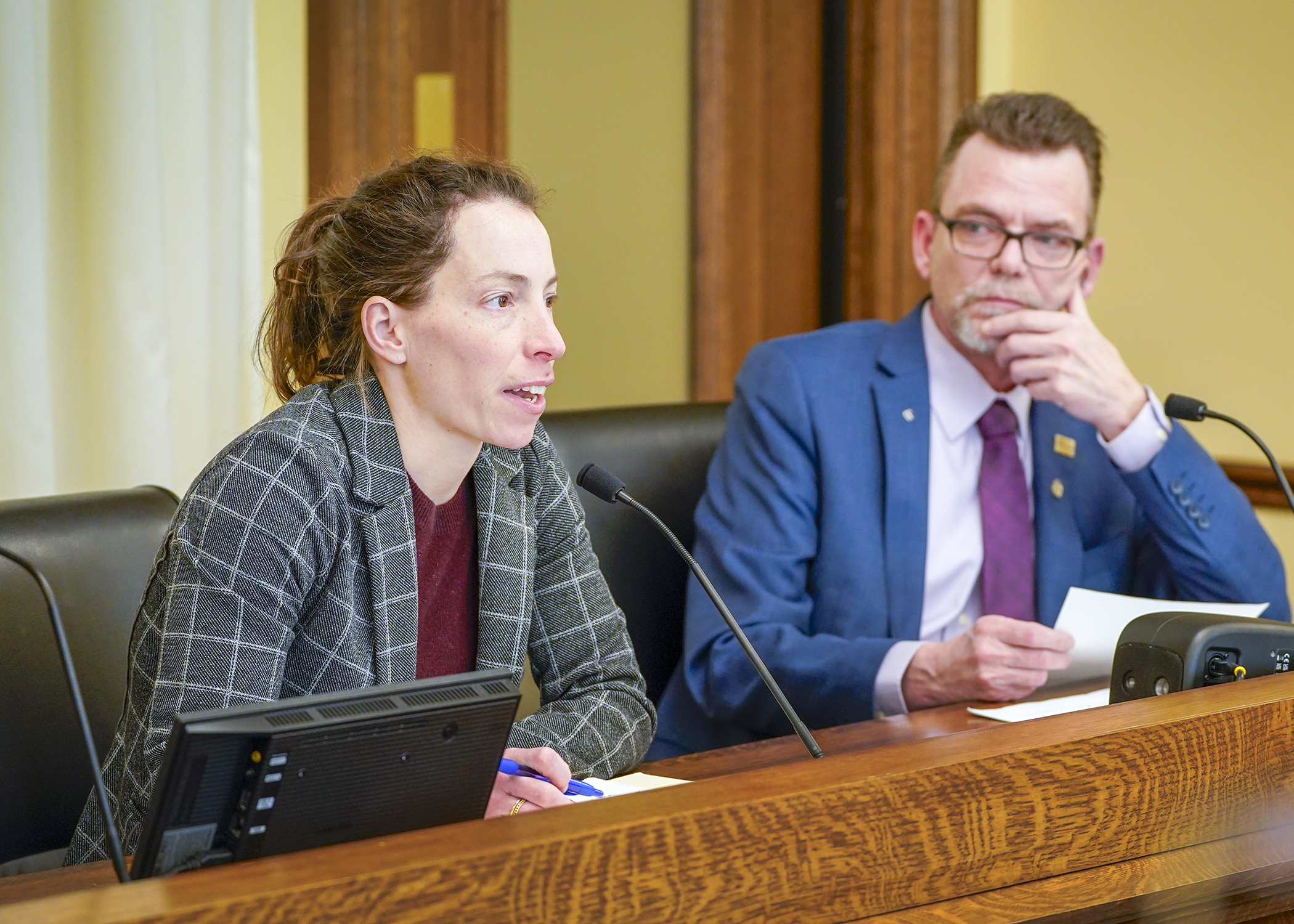Energy committee signs off on regulatory shortcuts for data centers

If you own a smart phone, then you have a little computer in your pocket, quite an advance from the 1940s, when a computer could take up an entire floor of a building. But if you think that big spaces for modern computing are no longer necessary, perhaps you haven’t heard about data centers.
They house information technology infrastructure for building, running and delivering applications and services. They’re essential to keeping that little computer in your pocket running. And they use a lot of electricity.
Now that Amazon and Microsoft have purchased land for large data centers in Becker — a town where an Xcel Energy coal-fired power plant is slated for retirement in 2030 — Rep. Shane Mekeland (R-Clear Lake) wants to make sure they’ll have all the necessary electricity. So he sponsors HF28, which would make things considerably easier for a company wanting to open a data center in Minnesota.
The bill is designed to do two things: Remove the requirement for a state environmental impact assessment, in favor of a local version called an “alternative urban areawide review.” And allow a combination of emergency backup generators at a single site with a combined capacity of 50,000 kilowatts or more.
On Thursday, the House Energy Finance and Policy Committee approved the bill, as amended, on an 8-7 party-line vote and forwarded it to the House Environment and Natural Resources Finance and Policy Committee.
“This is going to create an environment where we can be the host state of a tremendous amount of private capital investment in many parts of our state,” Mekeland said. “The eight communities that hosted baseload have been scrapping for many years, trying to figure out how to revitalize those communities when their baseload power units are decommissioned. … This is a big blessing for the community I represent and for many others.”
Testimony on the bill was split between those who favored it for economic reasons and those concerned about the environmental impact of relying upon backup generators, which are customarily diesel-driven.
Rep. Athena Hollins (DFL-St. Paul) questioned why the legislation should move forward while the Public Utilities Commission is scheduled to rule on the process of environmental review for data centers in March. Mekeland said that was part of a two-pronged approach.
“If you guys are so concerned about it being built here, it’s going to be built in a neighboring state,” Mekeland said. “It does not matter, because they are coming regardless. And they’re being built throughout the globe, everywhere. … Either we get in front of it or we get behind it.”
Related Articles
Search Session Daily
Advanced Search OptionsPriority Dailies
Speaker Emerita Melissa Hortman, husband killed in attack
By HPIS Staff House Speaker Emerita Melissa Hortman (DFL-Brooklyn Park) and her husband, Mark, were fatally shot in their home early Saturday morning.
Gov. Tim Walz announced the news dur...
House Speaker Emerita Melissa Hortman (DFL-Brooklyn Park) and her husband, Mark, were fatally shot in their home early Saturday morning.
Gov. Tim Walz announced the news dur...
Lawmakers deliver budget bills to governor's desk in one-day special session
By Mike Cook About that talk of needing all 21 hours left in a legislative day to complete a special session?
House members were more than up to the challenge Monday. Beginning at 10 a.m...
About that talk of needing all 21 hours left in a legislative day to complete a special session?
House members were more than up to the challenge Monday. Beginning at 10 a.m...